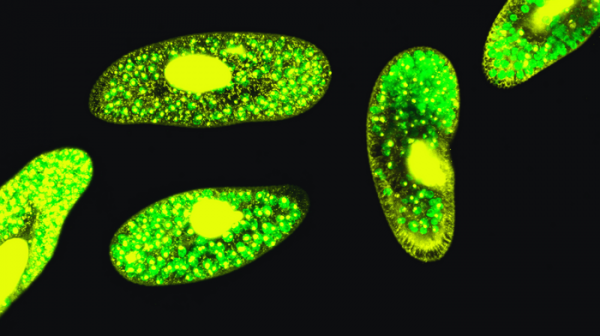Microplastic pollution reduces energy production in a microscopic creature found in freshwater worldwide, new research shows.
Paramecium bursaria contain algae that live inside their cells and provide energy by photosynthesis.
The new study, by the University of Exeter, tested whether severe microplastic contamination in the water affected this symbiotic relationship.
The results showed a 50% decline in net photosynthesis – a major impact on the algae’s ability to produce energy and release oxygen.
“The relationship I examined – known as photosymbiosis – is commonly found both in freshwater and the oceans,” said Dr Ben Makin, lead author and associate researcher at the Environment and Sustainability Institute on Exeter’s Penryn Campus in Cornwall.
Read more at: University of Exeter
Paramecium bursaria (Photo Credit: Dr Ben Makin)


